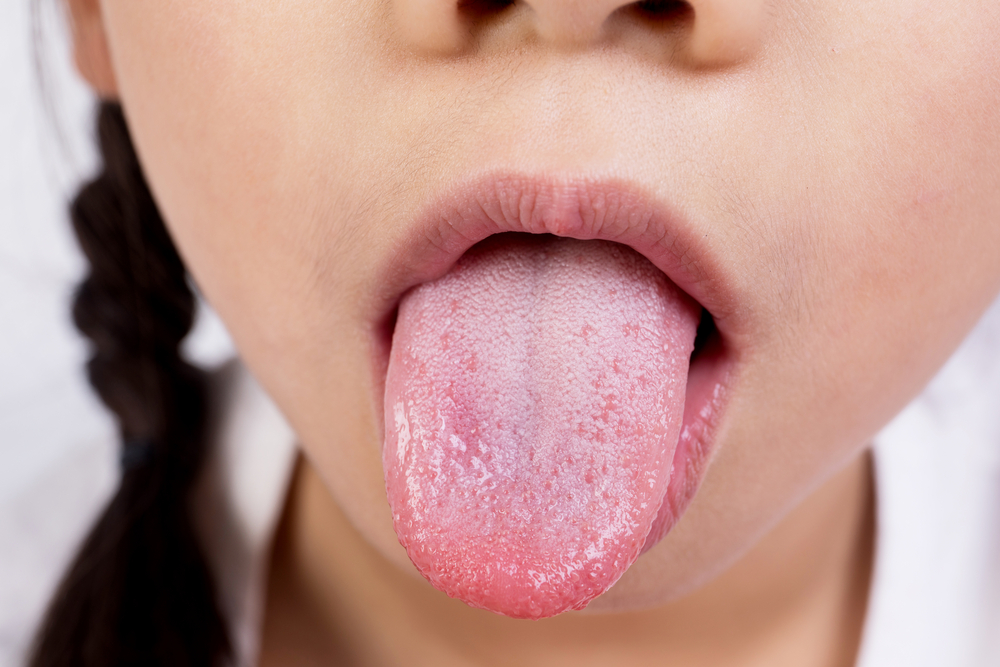 Dry mouth, also known as xerostomia, is a condition that occurs when your salivary glands don’t produce enough saliva to keep your mouth moist. While it might seem like a minor inconvenience, dry mouth can lead to significant oral health issues, including tooth decay, gum disease, and difficulty eating or speaking. Both children and adults can experience dry mouth, though the causes and impacts may differ.
Dry mouth, also known as xerostomia, is a condition that occurs when your salivary glands don’t produce enough saliva to keep your mouth moist. While it might seem like a minor inconvenience, dry mouth can lead to significant oral health issues, including tooth decay, gum disease, and difficulty eating or speaking. Both children and adults can experience dry mouth, though the causes and impacts may differ.
What Causes Dry Mouth?
Several factors can contribute to dry mouth, including:
1. Medications
Many common medications list dry mouth as a side effect. These include:
- Antihistamines
- Antidepressants
- Decongestants
- Diuretics
- Pain relievers
According to the National Institutes of Health (NIH), over 400 medications can contribute to xerostomia.
2. Medical Conditions
Certain health conditions can impair salivary gland function, including:
- Diabetes
- Sjögren’s syndrome
- Parkinson’s disease
- Stroke
3. Dehydration
Not drinking enough water, especially in dry climates like Utah, can lead to dehydration and, subsequently, dry mouth.
4. Lifestyle Choices
- Smoking or Tobacco Use: Tobacco products reduce saliva production.
- Alcohol Consumption: Alcohol can dehydrate the body and dry out the mouth.
5. Age
Aging itself doesn’t cause dry mouth, but older adults are more likely to take medications or have conditions that contribute to the issue.
Symptoms of Dry Mouth
Dry mouth symptoms can range from mild discomfort to severe oral health problems. Common symptoms include:
- A sticky, dry feeling in the mouth
- Frequent thirst
- Bad breath
- Cracked lips or corners of the mouth
- Difficulty chewing, swallowing, or speaking
- A burning sensation in the mouth or tongue
- Increased risk of cavities and gum disease
If left untreated, dry mouth can significantly impact your oral health and overall quality of life.
Differences in Dry Mouth Between Children and Adults
Children:
- Causes: In children, dry mouth is often caused by dehydration, mouth breathing (due to nasal congestion), or certain medications like antihistamines.
- Impacts: Children with dry mouth are at a higher risk for cavities, as saliva helps neutralize acids and wash away food particles.
- Management: Ensuring proper hydration and treating the underlying causes, such as allergies or congestion, can help alleviate dry mouth in children.
Adults:
- Causes: Adults often experience dry mouth due to medications, medical conditions, or lifestyle factors like smoking.
- Impacts: Chronic dry mouth in adults can lead to more severe oral health problems, including gum disease and tooth loss.
- Management: Adults may require a combination of lifestyle changes, medical treatments, and enhanced oral hygiene practices to address dry mouth.
Solutions and Preventative Options for Dry Mouth
1. Stay Hydrated
Drink plenty of water throughout the day to keep your mouth and body hydrated. This is particularly important in dry climates like Utah, where dehydration is more common.
2. Use Saliva Substitutes
Over-the-counter saliva substitutes and mouthwashes designed for dry mouth can help keep your mouth moist.
3. Improve Oral Hygiene
- Brush and floss regularly using fluoride toothpaste.
- Consider toothpaste and rinses specifically formulated for dry mouth.
4. Chew Sugar-Free Gum
Chewing gum or sucking on sugar-free lozenges can stimulate saliva production. Look for products containing xylitol, which also helps prevent cavities.
5. Avoid Triggers
Reduce or eliminate habits that exacerbate dry mouth, such as smoking, alcohol consumption, and caffeine intake.
6. Manage Underlying Conditions
If your dry mouth is caused by a medical condition or medication, consult your healthcare provider. They may adjust your treatment plan or recommend additional strategies to manage your symptoms.
Statistics on Dry Mouth
- The prevalence of dry mouth increases with age, affecting up to 30% of adults over 65, according to the NIH.
- 1 in 4 people taking prescription medications experiences dry mouth as a side effect.
- Dry mouth is more common in arid regions like Utah, where low humidity contributes to dehydration.
Why Choose Riverside Dental to Address Dry Mouth?
At Riverside Dental in St. George, Utah, we understand the challenges that dry mouth can pose to your oral health. Our experienced team offers personalized care to address your unique needs, whether it’s identifying the underlying cause of your dry mouth or providing solutions to protect your teeth and gums.
We offer:
- Professional fluoride treatments to strengthen enamel and reduce the risk of cavities.
- Customized advice and products for managing dry mouth.
- Comprehensive exams to ensure your oral health stays on track.
Don’t let dry mouth compromise your oral health. Schedule an appointment with Riverside Dental today to find relief and protect your smile.






 (435) 656-4441
(435) 656-4441 826 S 3000 E Ste 2
826 S 3000 E Ste 2
Leave a Reply